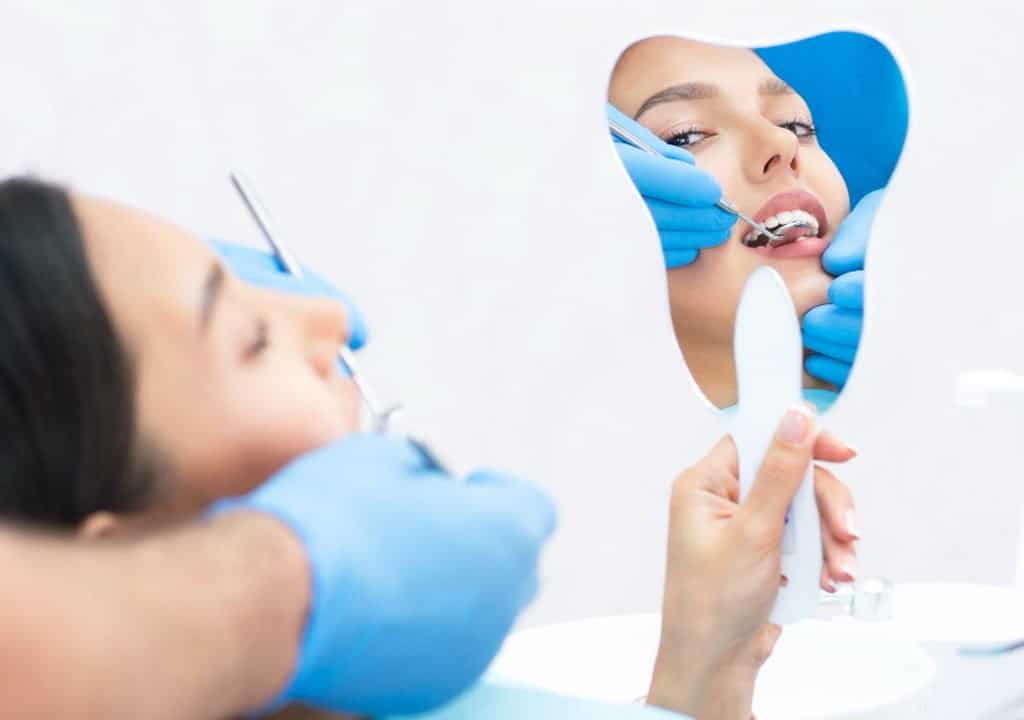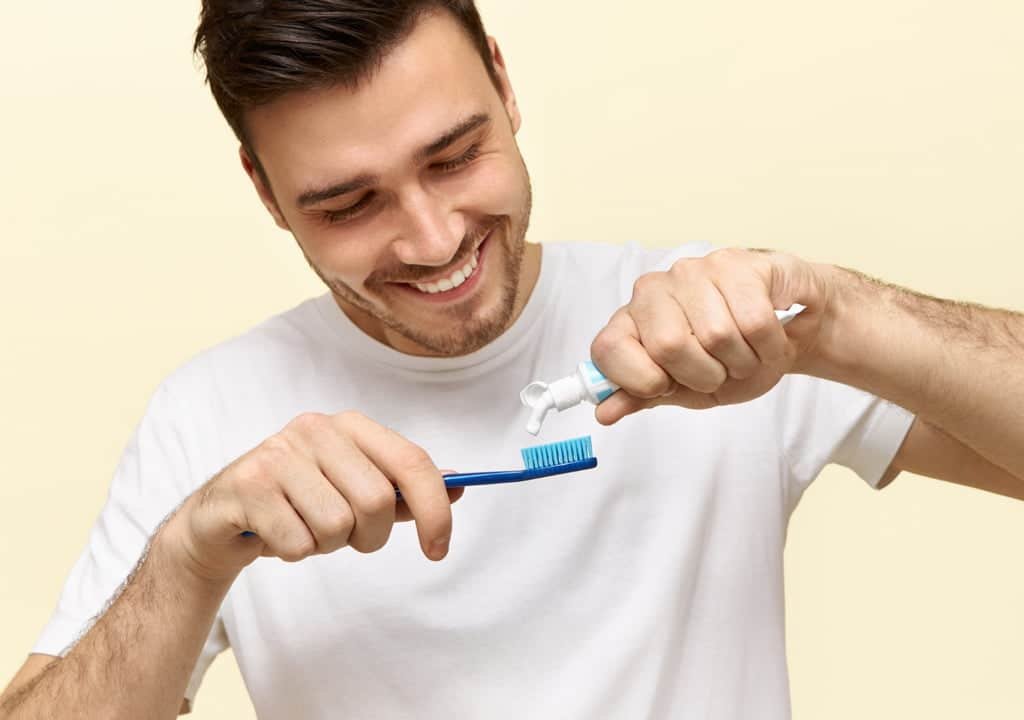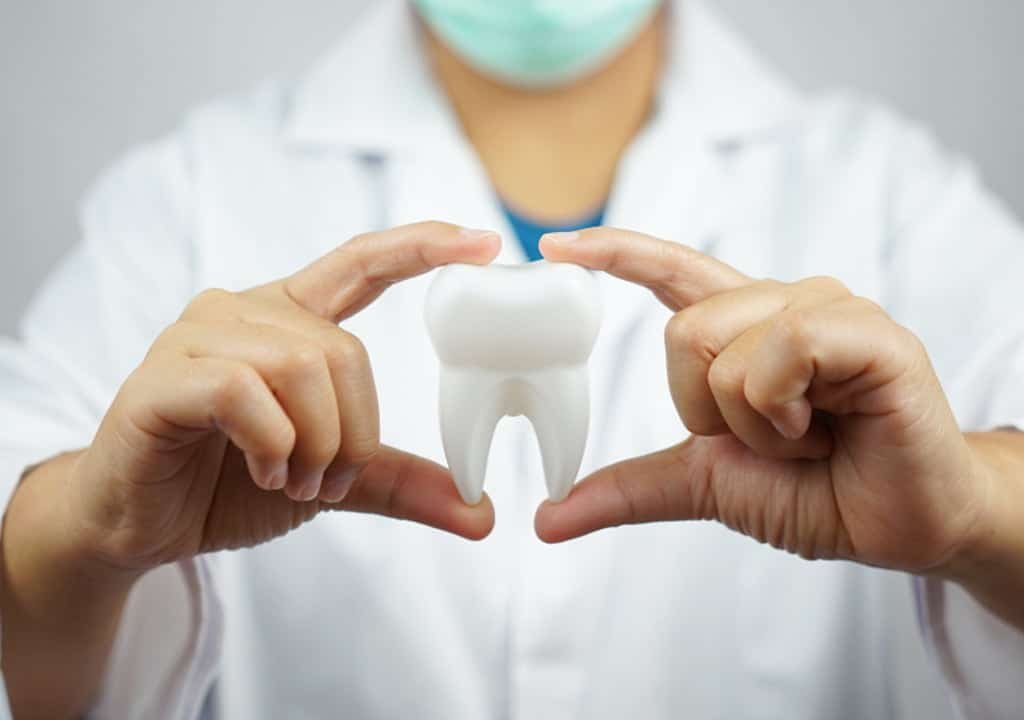As the days get longer and the weather gets warmer, it can only mean one thing: summer break is almost here! We’ve put together this content that explains Keeping Your Kids Teeth Healthy In The Summer. Be aware and take care of your teeth.
10 Dental Hygiene Tips for Healthy Teeth
Dental hygiene is needed for a healthy body and you must know the smart tips to keep your teeth healthy and long lasting.
Dental Care Networks – Why They Make Sense
Although this idea may have merit, significant legal and other barriers stand in the way of allowing dentists to do more primary health care, physicians to do more oral health care, and both professions to collaborate.
Fluoride – Nature’s Cavity Fighter
One should be active and careful when it comes to oral hygiene. If you love fluoride, the details would be beneficial for you.
Consequences Of Poor Dental Hygiene And Unhealthy Teeth
Blog
The Impact of Poor Oral Hygiene on Your Health
Introduction:
Dental hygiene matters the most because it excels your overall personality. Unhealthy teeth damage your internal as well as external appearance.
We’ve put together this content that explains the Consequences Of Poor Dental Hygiene And Unhealthy Teeth. Be aware and take care of your teeth.
[1]You’ve heard that classic ditty that talks about your bones, right? Your toe bone is connected to your foot bone, which is connected to your heel bone, and so forth. While that speaks to your skeletal system, your entire body is interconnected similarly. What this means in dental terms is that your dental health can affect your overall health. While a cavity may not affect your endocrine system, severe gum disease could impact your health well beyond your mouth. Note how your oral health can affect your well-being below and what you can do about it today.
[2]Facts About Dental And Oral Health
Dental cavities and gum disease are very common. According to the World Health Organization Trusted Source:
- Between 60 and 90 percent of school children have at least one dental cavity
- Nearly 100 percent of adults have at least one dental cavity
- Between 15 and 20 percent of adults ages 35 to 44 have severe gum disease
- About 30 percent of people around the world ages 65 to 74 don’t have any natural teeth left
- In most countries, out of every 100,000 people, there are between 1 and 10 cases of oral cancer
- The burden of oral disease is much higher in poor or disadvantaged population groups
There are many steps you can take to keep your teeth healthy. For example, dental and oral disease can be greatly reduced by:
- Brushing your teeth with fluoride toothpaste at least twice a day
- Flossing your teeth at least once a day
- Decreasing your intake of sugar
- Eating a diet high in fruits and vegetables
- Avoiding tobacco products
- Drinking fluoridated water
- Seeking professional dental care
[3]Oral Health Conditions
Oral health refers to the health of the teeth, gums, and the entire oral-facial system that allows us to smile, speak and chew. Some of the most common diseases that impact our oral health include cavities (tooth decay), gum (periodontal) disease, and oral cancer.
More than 40% of adults report having felt pain in their mouth within the last year, and more than 80% of people will have had at least one cavity by age 34. The nation spends more than $124 billion on costs related to dental care each year. On average, over 34 million school hours and more than $45 billion in productivity are lost each year as a result of dental emergencies requiring unplanned care.
Oral conditions are frequently considered separate from other chronic conditions, but these are actually interrelated. Poor oral health is associated with other chronic diseases such as diabetes and heart disease. The oral disease also is associated with risk behaviors such as using tobacco and consuming sugary foods and beverages.
Public health strategies such as community water fluoridation and school sealant programs are safe and effective interventions proven to prevent cavities and save money.
Cavities (Tooth Decay)
Cavities are caused by a breakdown of the tooth enamel by acids produced by bacteria located in plaque that collects on teeth, especially along the gum line and in the crevices on the chewing surfaces of the teeth. Eating and drinking foods high in carbohydrates cause this bacteria to produce the acids that can cause the outer coating of the tooth (enamel) or root surface to break down (demineralize).
Although cavities are largely preventable, they are one of the most common chronic diseases throughout their lifespan. Untreated tooth decay can lead to an abscess (a severe infection) under the gums which can spread to other parts of the body and have serious, and in rare cases fatal, results.
More than half of children aged 6 to 8 have had a cavity in at least one of their baby (primary) teeth.
- Up to 10% of children aged 2 to 5 have untreated cavities.
- More than half of adolescents aged 12 to 19 have had a cavity in at least one of their permanent teeth.
- One-quarter of adults aged 20 to 64 have untreated cavities.
- More than 90% of adults have had a cavity.
- Community water fluoridation and school dental sealants programs are both cost-saving, proven strategies to prevent cavities.
Gum (Periodontal) Disease
About 4 in 10 adults aged 30 years or older had gum (periodontal) diseases in 2009–2014.5 Gum disease is mainly the result of infections and inflammation of the gums and bone that surround and support the teeth. Certain chronic conditions increase one’s risk for periodontal disease including diabetes, a weakened immune system, poor oral hygiene, and heredity. Tobacco use is also an important risk factor for gum disease. If early forms of periodontal diseases are not treated, the bone that supports the teeth can be lost, and the gums can become infected. Teeth with little bone support can become loose and may eventually have to be extracted.
Oral Cancer
In 2016, there were nearly 45,000 new cases of cancer of the oral cavity and pharynx diagnosed in the United States and more than 10,000 deaths. The 5-year survival rate for these cancers is about 61 percent. The mortality rate from oral cancer is nearly three times as high in males as it is in females (4 vs 1.4 for every 100,000 people) and nearly twice as high in white and black populations as it is in the Hispanic population (2.6 vs. 1.5 for every 100,000 people).6 Preventing high-risk behaviors, that include cigarette, cigar, or pipe smoking, use of smokeless tobacco, and excessive use of alcohol are critical in preventing oral cancers. Early detection is key to increasing the survival rate for these cancers.
Oral Human Papilloma Virus (HPV), the most common sexually transmitted disease, can cause cancers in the back of the throat, called “oropharyngeal cancers.” More research is needed to determine whether HPV itself causes oropharyngeal cancers, or if other factors (such as smoking or chewing tobacco) interact with HPV to cause these cancers.
Conclusion:
The content explains all the scenarios related to poor dental hygiene and unhealthy teeth. All the possible ways are explained but never bound yourself. Keep looking for the best suggestions for your good oral health.
For Assistance, Visit https://appletreedental.ca/
Article compiled by https://appletreedental.ca/
Article Reference Links:
| https://www.cdc.gov/oralhealth/conditions/index.html |
Soothing Sensitive Teeth from Summertime Sweets
Blog
How to Soothe Sensitive Teeth This Summe
Introduction:
Sensitive teeth increase discomfort and people would not be able to behave properly. Using some smart tips you can minimize the discomfort.
We’ve put together this content that explains Soothing Sensitive Teeth from Summertime Sweets. Be aware and take care of your teeth.
[1]For many people, warmer weather means ice cream, Popsicles, and plenty of cold drinks. For people who have sensitive teeth, however, it’s not so easy to indulge in traditional summertime sweets. If you suffer from tooth sensitivity, here’s how you can ease your discomfort.
Understanding The Cause
According to the Journal of the American Dental Association, one in eight adults suffers from some form of tooth sensitivity. Most of the time, this stems from cavities, worn enamel, receding gums or decaying dental work. Discomfort tends to amplify when affected areas come into contact with hot or cold foods and beverages. In turn, many people are forced to avoid some of their favorite indulgences, because they simply cannot tolerate the pain.
Getting Relief
If you suffer from tooth sensitivity, there are a few things you can do to reduce discomfort, including:
- Strengthen enamel by brushing daily with fluoride-enriched toothpaste.
- Avoid acidic foods and drinks, which can exacerbate pain and wear down tooth enamel.
- Avoid smoking or chewing tobacco, which also contributes to tooth sensitivity.
- Use a soft-bristled toothbrush, which is less abrasive than hard-bristled brushes.
- Avoid over-the-counter whitening agents, which can thin tooth enamel.
According to the American Dental Association, desensitizing toothpaste can also help reduce discomfort because they contain compounds that block sensation traveling from the tooth surface to the nerve. If desensitizing toothpaste prove ineffective, dentists generally recommend in-office treatments involving fluoride gels or special desensitizing agents. If this proves ineffective, fillings, crowns, inlays or bondings may be needed to treat decay or correct other underlying causes. In some cases, people require surgical gum grafts to replace lost gum tissue, protect the root and reduce sensitivity.
[2]Ways To Soothe Your Sensitive Teeth From Summer Sweets
Having sensitive teeth is something that occurs very often, especially during the summertime, when people tend to indulge in sweets like ice cream, popsicles, and candy bars. When you consume too many sweets, your teeth sometimes become very sensitive, which makes it hard to chew, or even enjoy beverages. The good news for people suffering from sensitive teeth is that it doesn’t require a trip to the dentist, unless it is severe and persistent, because there are a few things you can do to treat the issue, which is listed below.
Practice Good Oral Care
This is the best advice you will ever get from a dentist. If you brush your teeth at least twice a day, and floss daily, while making regular trips to your dentist’s office, you can prevent situations like this from occurring.
Switch To Toothpaste Made For Sensitive Teeth
If your teeth are sensitive, an easy cure for it is to change the toothpaste that you are currently using, to one that is designed for sensitive teeth. After using it regularly for a period of time, the sensitivity in your teeth will gradually reduce.
Use Dental Products That Have Fluoride
When it comes to sensitive teeth, fluoride is a big deal because it can help strengthen the surface of your teeth which has been affected by bacterial acids over the years. You should check to make sure that both your toothpaste and mouthwash have fluoride, to reduce any sensitivity that you are feeling.
Use A Soft Bristle Toothbrush
Using a soft bristle toothbrush helps to keep your teeth’s protective layer as strong as possible because you aren’t scrubbing away the enamel protecting your teeth. Instead, it helps you clean your mouth without causing damage to your teeth and gums.
Avoid Acidic Foods And Drinks
If you have sensitive teeth, you should stay away from acidic foods like fruits, and drinks like wine and soft drinks, because they add to the pain and sensitivity that you are feeling. Some sugary foods can also have the same effects, so you will also have to sacrifice those to reduce the sensitivity of your teeth.
Avoid Smoking And Chewing Tobacco
Like acidic foods and drinks, smoking and chewing tobacco also contribute to the sensitivity of your teeth, so you should stay away from them also.
These are a few things that you should do if you are experiencing sensitive teeth, and most of the time, they do work. If your pain is persistent, you should make an appointment to see your dentist, who will be able to help you reduce the sensitivity.
Conclusion:
The content explains all the scenarios related to sensitive teeth. All the possible ways are explained but never bound yourself. Keep looking for the best suggestions for your good oral health.
For Assistance, Visit https://appletreedental.ca/
Article compiled by https://appletreedental.ca/
Article Reference Links:
-
https://www.interdent.com/mdco/blog/soothing-sensitive-teeth-from-summertime-sweets/ ↑
-
https://danawaltersdds.com/blog/ways-to-soothe-your-sensitive-teeth-from-summer-sweets/ ↑
Emergency Dental Services All Services
FAST & RELIABLE EMERGENCY DENTAL SERVICES
Dental Care Services All Services
COMPREHENSIVE DENTAL CARE SERVICES FOR ALL
Pain Free Dentistry All Services
PAIN-FREE DENTISTRY: COMFORTABLE CARE FOR EVERY PATIENT
4 Common Oral Hygiene Mistakes Women Make
Blog
4 Common Oral Hygiene Mistakes Women Make
Introduction:
[1]Oral hygiene mistakes often create bigger problems. Many women do the same mistakes and don’t pay attention to their oral well-being.
We’ve put together this content that explains 4 common oral hygiene mistakes made by women. Be aware and take care of your teeth.
Did you know that your oral health is largely connected to your overall health and well-being? Common oral hygiene mistakes and what you can do to correct them to have better oral and overall health.
Not maintaining good oral hygiene.
The worst mistake that you can make for your mouth is poor oral hygiene. Follow these recommendations daily for better oral health:
Brush regularly
Brush your teeth for at least two minutes at least twice a day – or even better, within 20 minutes of eating. Use a smooth or soft toothbrush with an American Dental Association (ADA) approved toothpaste with fluoride.
Floss daily
Floss your teeth at least once a day. Flossing is just as important as brushing as it gets little pieces of food unstuck from between your teeth and removes plaque and bacteria that cause decay and periodontitis (gum disease).
Use mouthwash
Consider finishing your oral hygiene routine with fluorinated mouthwash. Mouthwash can help clean areas in and around the gums and re-mineralize the teeth. Avoid alcohol-based mouthwashes as they dry out the mouth, which may lead to tooth decay.
Drink water
Water is the best beverage for keeping your mouth healthy and hydrated. If you are looking for a drink other than water, avoid acidic beverages such as citrus juices, soft drinks, and wine. The acid in the beverages can etch, or roughen up, the enamel. When the enamel gets etched, it collects plaque and bacteria easier, which causes the enamel to be eroded, resulting in tooth decay.
[2]Not having regular dental check-ups.
See your dentist for regular checkups and cleanings. You should be seeing the dentist every six months so that any issues can be caught early and your teeth can be cleaned by a professional.
Snacking
“Frequent snacking can raise a person’s risk for getting cavities, especially if the snacks contain sugar or starches,” Dr. Nagham Altalib says. “An occasional sweet treat is fine, but the prolonged, repeated exposure of teeth to sugar and other carbohydrates will accelerate both the start and growth of cavities.”
Eating acidic foods at night
“The acid stokes up the fire, the pitta dosha, keeping the saliva acidic, which in turn affects the health of the gums,” says Stoffer. “At night, it’s better to eat early, say at least two hours before going to bed, so the digestion works well and the state of the mouth returns to normal.”
Conclusion:
We hope the content lets you understand oral health mistakes. All the possible ways are explained but never bound yourself. Keep looking for the best suggestions for your good oral health.
For Assistance, Visit https://appletreedental.ca/
Article compiled by https://appletreedental.ca/
Article Reference Links:









